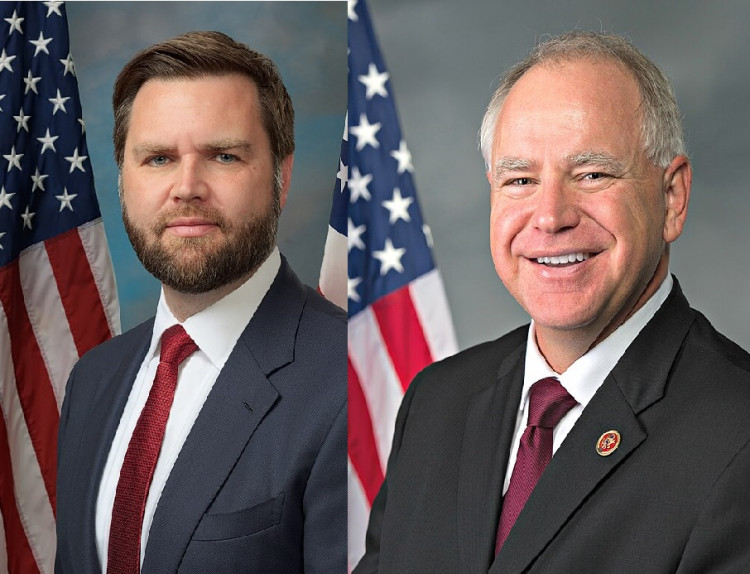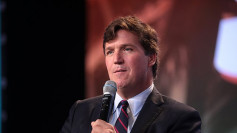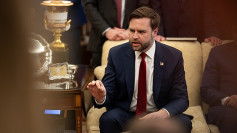The vice-presidential debate between Democrat Tim Walz and Republican JD Vance, held on Tuesday, offered a surprisingly civil contrast to the heated rhetoric that has marked much of this year's election campaign. While both candidates have been sharply critical of one another on the campaign trail, their onstage interactions were largely polite, with the two saving their sharpest attacks for their respective running mates, Vice President Kamala Harris and former President Donald Trump.
The debate, however, was not without moments of tension, particularly as the candidates addressed key issues such as the economy, the Middle East crisis, and the 2020 election.
One of the most notable exchanges occurred toward the end of the debate, when Vance, who has previously stated he would not have voted to certify the 2020 election results, sidestepped a question on whether he would challenge the results of this year's election should Trump lose. Walz responded by blaming Trump's false claims of voter fraud for inciting the January 6, 2021 attack on the U.S. Capitol. "He is still saying he didn't lose the election," Walz said.
He pressed Vance, asking, "Did he lose the 2020 election?" Vance avoided a direct answer, instead accusing Harris of promoting online censorship. Walz called Vance's non-response "damning."
Throughout the debate, both candidates sought to project themselves as representatives of America's Midwest, offering opposing visions for the country. Walz, the liberal governor of Minnesota, emphasized his background as a former high school teacher, while Vance, a bestselling author and senator from Ohio, portrayed himself as a conservative voice with a firm stance on national issues. Despite their differences, both candidates repeatedly thanked each other and maintained a tone of "Midwestern nice" that stood in contrast to the more divisive language seen in the broader campaign.
Vance used much of his time to criticize the Biden administration's handling of key issues, including inflation and immigration. He particularly targeted Harris, questioning why she hadn't done more to address these challenges during her time as vice president. "If Kamala Harris has such great plans for how to address middle-class problems, then she ought to do them now," Vance said, emphasizing that Harris should act while still in office, rather than wait for a potential promotion.
Walz, meanwhile, turned his attacks toward Trump, describing him as an unstable leader who had prioritized billionaires over working Americans. On immigration, Walz accused Trump of abandoning a bipartisan border security bill earlier this year, arguing that Trump had kept the issue alive to use it as a campaign tool. "Donald Trump had four years to do this," Walz said. "He promised you how easy it would be."
While the debate was largely policy-focused, the shadow of Trump loomed large. Trump live-posted throughout the debate on his Truth Social platform, criticizing the moderators and calling Walz "pathetic" and "low IQ." The candidates also touched on the ongoing crisis in the Middle East. Walz argued that Trump's erratic behavior made him unfit to manage the escalating conflict, while Vance asserted that Trump's policies had made the world more secure.
On the question of whether he would support a preemptive strike by Israel against Iran, Vance suggested he would defer to Israel's judgment. Walz, for his part, did not directly answer the question.
Political analysts typically suggest that vice-presidential debates don't drastically alter the outcome of an election, but with the race so close, even minor shifts in public opinion could prove decisive. Polls show that both Walz and Vance have relatively even favorability ratings, with each candidate trying to sway undecided voters in key battleground states.
The debate also touched on the issue of abortion, a topic that has proven particularly damaging to Republicans in recent months. While Vance has expressed support for a 15-week limit on abortion, he struck a more moderate tone during the debate, suggesting that states should decide the issue. Walz criticized Trump's appointment of three Supreme Court justices, who played a role in overturning Roe v. Wade, and highlighted the negative impact this has had on women's health care.






